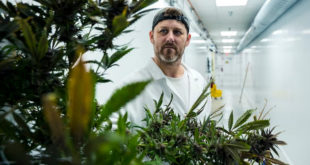
New research suggests that impaired cognitive function from marijuana use may not affect the young brain as much as previously thought. JAMA Psychiatry published data from 69 previously conducted studies analyzing the effects of heavier marijuana use in teens and young adults. The results showed that in comparison to non-marijuana users, heavier users did score lower on some tests, but further scrutiny by separating studies determined that the cognitive function differences diminished after just 72-hours.
Cobb Scott, lead study author from the University of Pennsylvania, told CNN, “There have been a couple of meta-analyses done in adult samples, but this is the first one to be done specifically in adolescent and young adult samples. We looked at everything from learning and memory to different aspects of executive functioning such as abstraction ability. And we basically showed that the largest effects – which was around a third of a standard deviation – was in the learning of new information and some aspects of executive functioning memory and speed of processing.”
Scott commented that results of other studies could be the residual effects of marijuana or potentially from withdrawal effects in heavy users. Previous studies regarding marijuana use and adolescents have been very inconsistent and continuously warned against adolescent marijuana use saying that the brain would be impacted negatively and reduce cognitive performance.
The new research released by Scott and his team examined 69 studies, comparing 2,152 marijuana users with 6,575 non-marijuana users. The age range was 10 – 50 and averaging around age 21.
Scott said the researchers found that, “Overall, the cognitive functioning of frequent marijuana users was reduced by one-third of a standard deviation compared with non-frequent marijuana users – a relatively small effect size.”
The researchers went a step further and separated the studies based on the length of marijuana use and length of abstinence of marijuana use. Other factors also included the age of first use, clinical characteristics (mental health disorders like depression), and sociodemographic characteristics. By further separating the data, it was determined that the length of abstinence significantly impacted associations with chronic marijuana use and cognitive functioning, but regardless, normal cognitive function was restored after a 72-hour break from marijuana use.
Scott said, “The reason we chose the 72-hour mark is that in looking at the data on cannabis withdrawal effects in heavy cannabis users, 72-hours seems to be past the peak of most withdrawal effects that occur.”
The researchers were diligent in compiling their data by also looking at Trail Making Test scores, the Digital Span Memory Test and California Verbal Learning test results.
Scott said, “The other thing that’s important to highlight is that we’re only looking at cognitive function. We’re not looking at risks for other adverse outcomes with cannabis use, like risk for psychosis, risk for cannabis use problems or other medical issues like lung functioning outcomes” and that “as attitudes change about cannabis use and cannabis use becomes a little bit more accepted, I think we need to have a real understanding of the potential risks and benefits of cannabis use.”
 AZ Marijuana Arizona Marijuana Info
AZ Marijuana Arizona Marijuana Info






